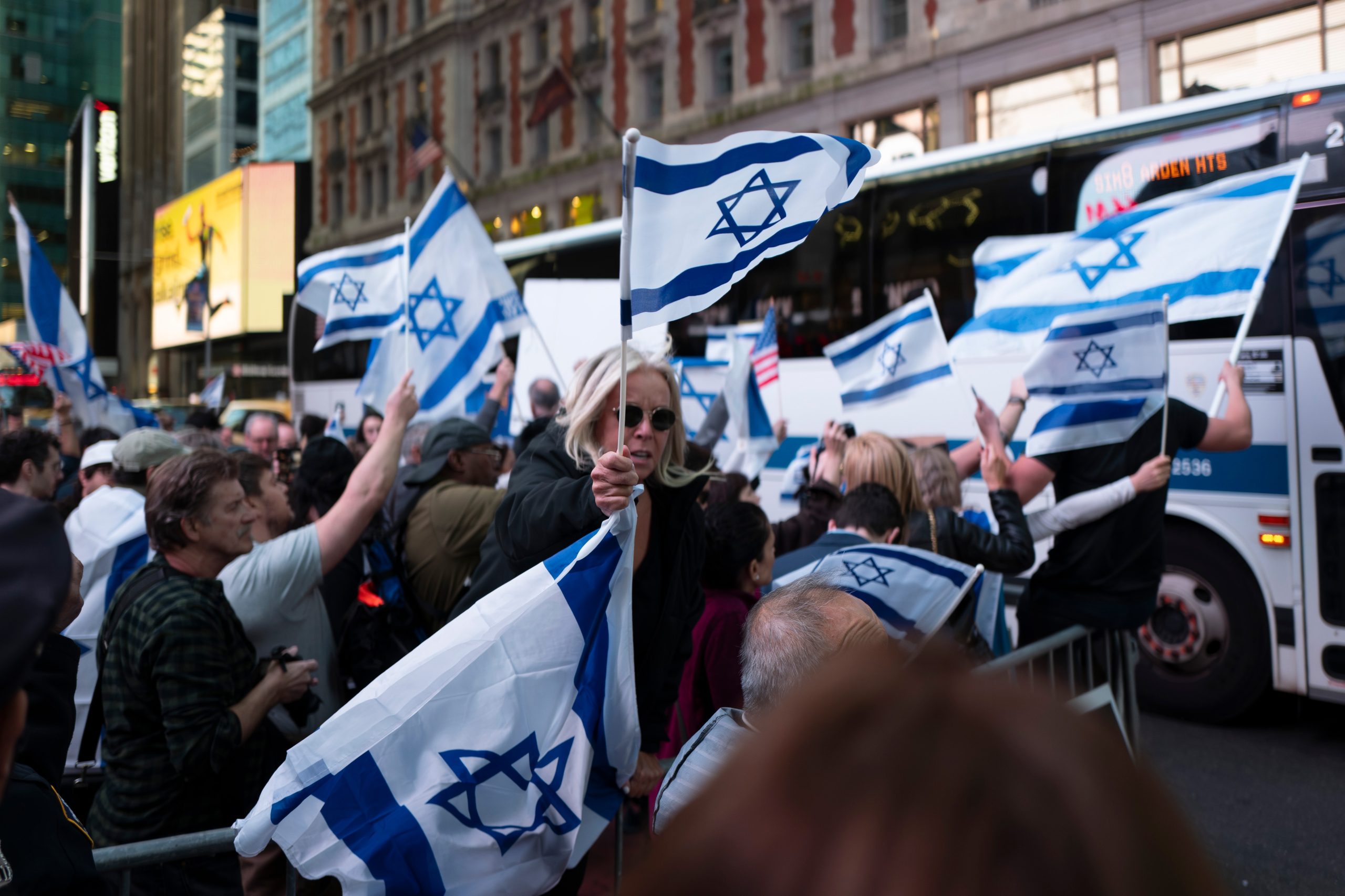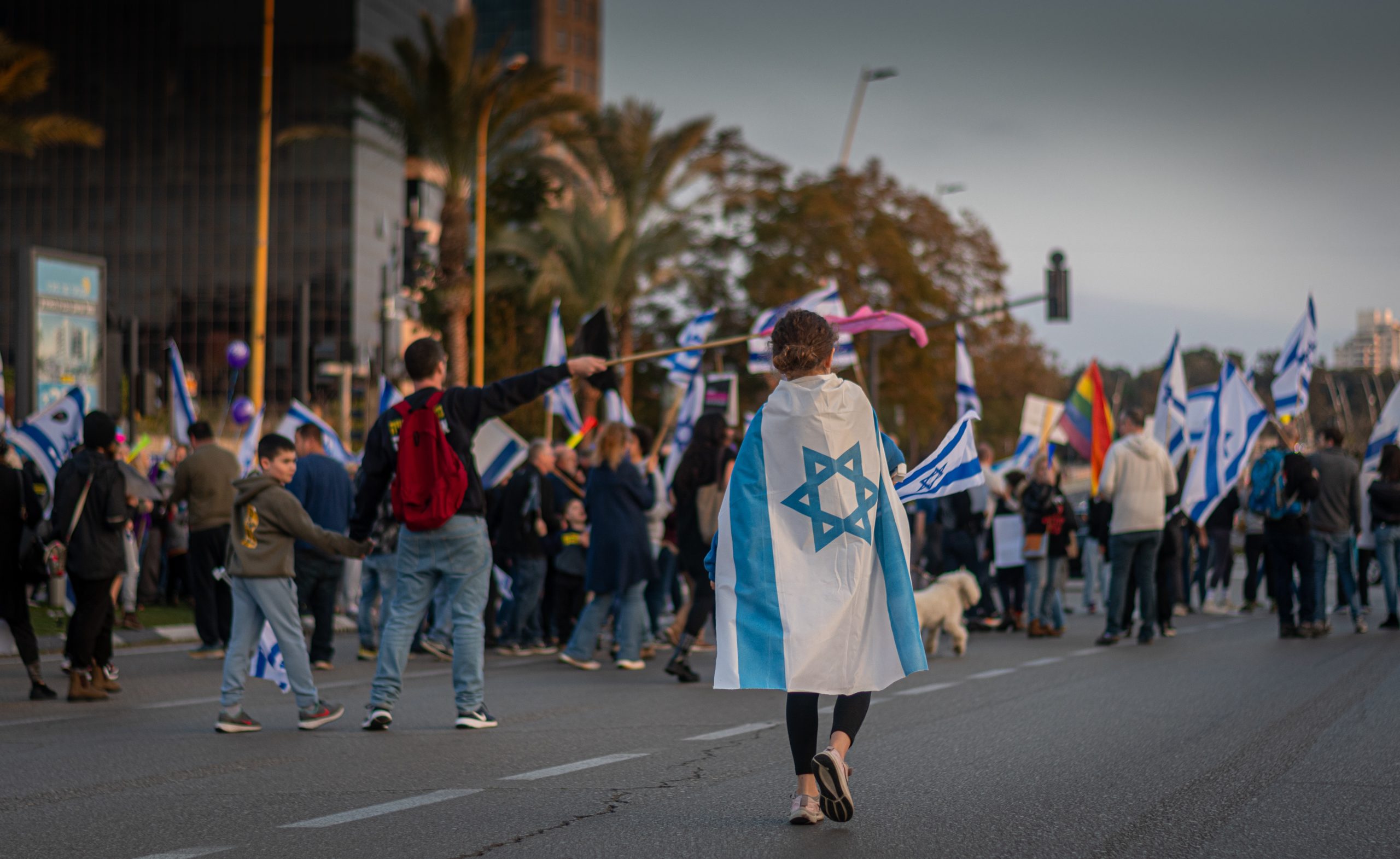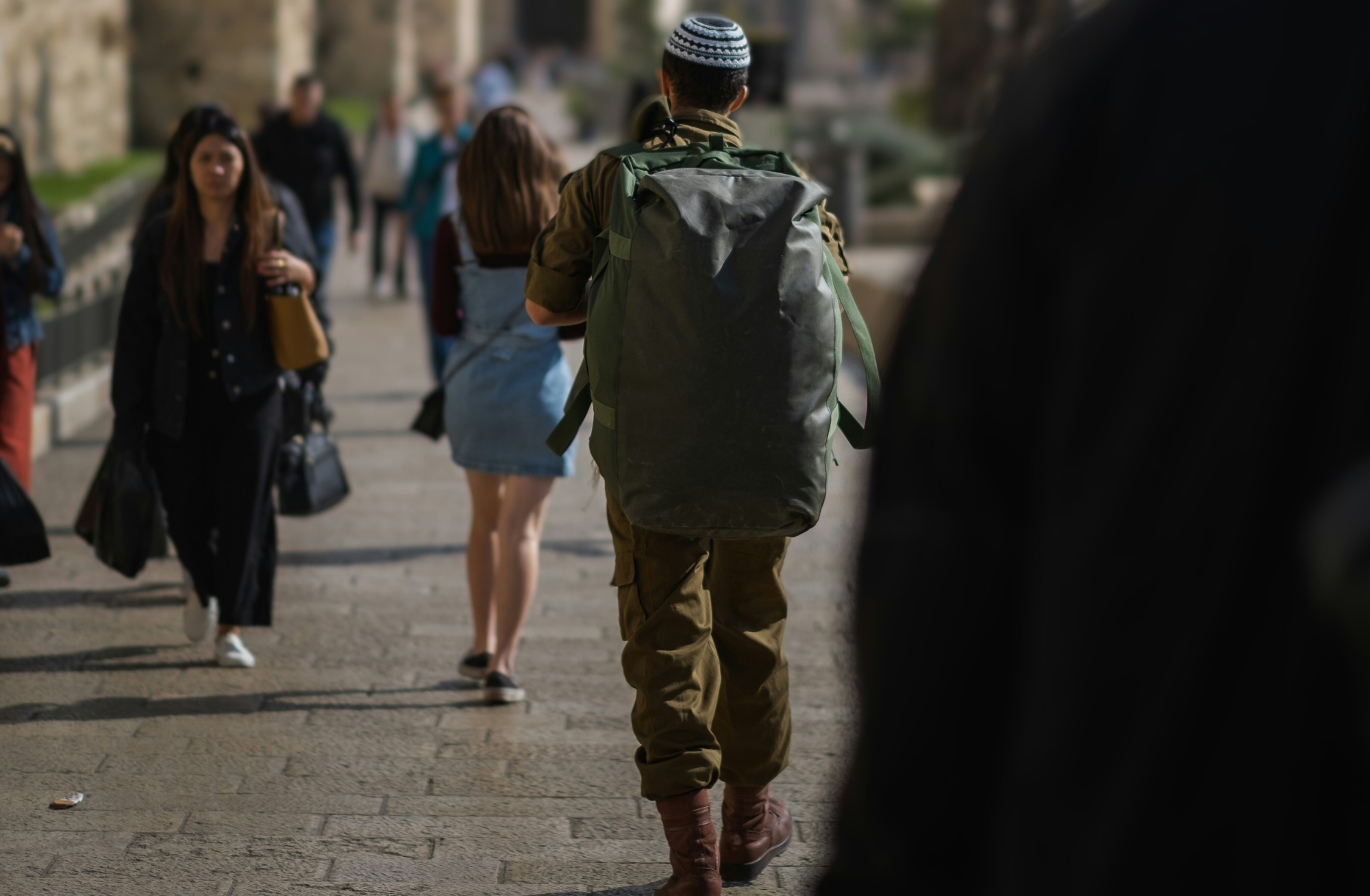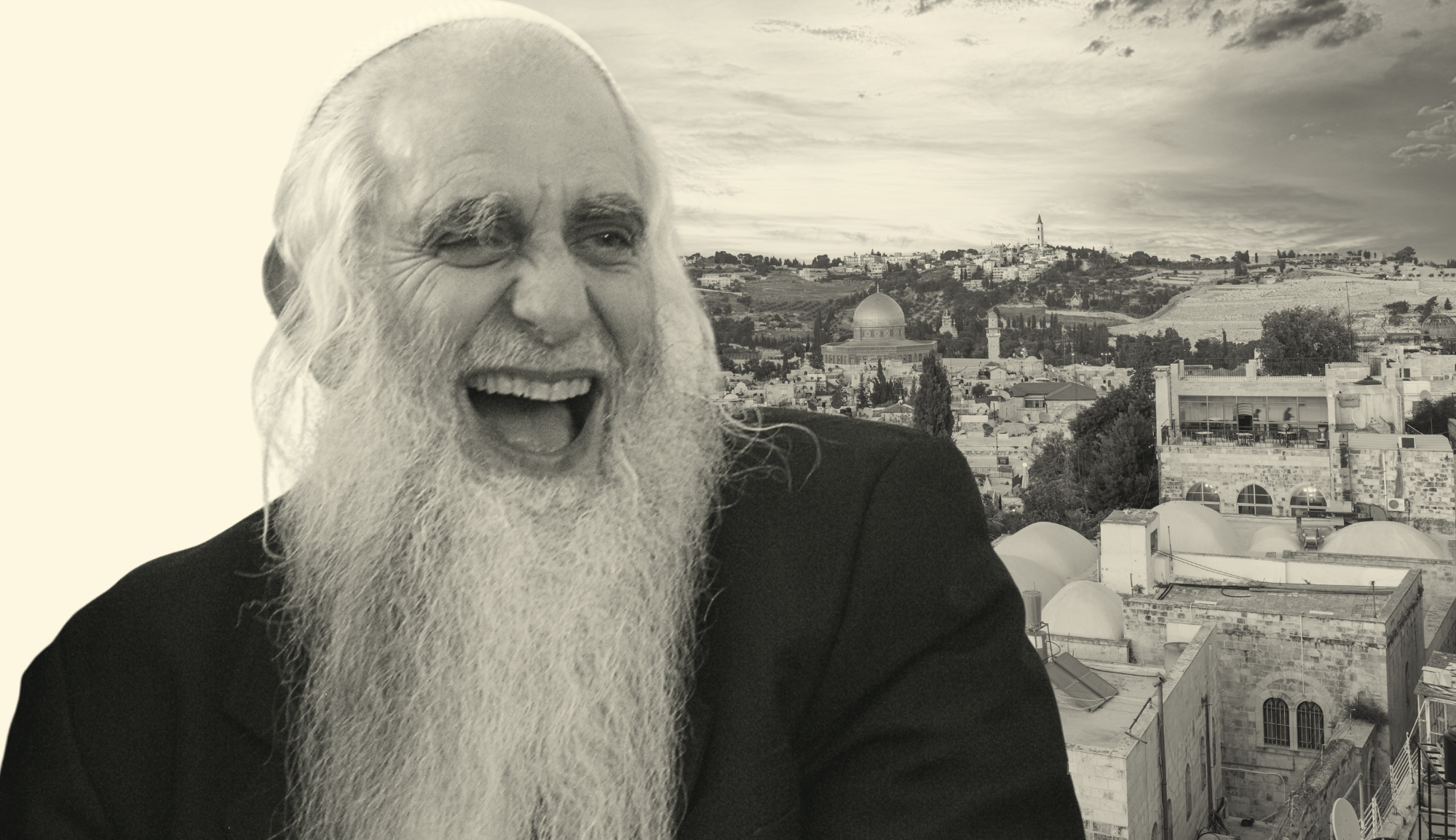The atrocities suffered by Israel from Hamas’ terrorism struck the soul of all Jews, whether in Israel or in the Diaspora. The Jewish People’s collective identity—Knesset Yisrael—binds us together in joy and sorrow.
We invited 18Forty community members to write in on their perspectives and experiences in the aftermath. Below are some of their words:
‘I Wish I Could Hug Him’
I served in the IDF as mashakit tash (type of social worker). It was very meaningful, but it’s not a job that does reserve duty. I honestly wished I was doing reserve duty so that I would be able to feel useful. Right now, I feel so incredibly useless and helpless. However, my husband is in reserve duty as a combat soldier.
I’m proud of him, but the selfish part of me wishes that he wasn’t. I wish he was safe at home with me. I wish I could hug him and hold him tight. But I know that’s not possible and that when I made Aliyah I chose to do it based on the fact that I believe Zionism is a “value worth dying for” (from Letters to Talia).
Sometimes I just find myself tearing up in random moments, like when I realized that the first day of university had passed and didn’t happen. Or when someone mentions buying baby presents for me because then I realize it’s close to my due date. I used to be happy when I felt my baby move, but now it depresses me. First, because my husband hasn’t felt the baby move in two weeks. My baby hasn’t properly heard his father’s voice in two weeks. Second, because I don’t know how I am supposed to bring this baby into this world. And after all the atrocities children have experienced and witnessed these past few weeks, I know that the only way I can protect my child is by keeping him inside me, but that’s obviously not a solution. But I wish I could keep him there in the comfort of my womb until the world is safe for another Jewish life to enter it.
— A, Israel
(Moved to Israel)
I Now Understand ‘What Galut Is All About’
Never have I made more sense of certain berachot in the Amida—redeeming Israel, gathering in the exiles, returning the Divine Presence, etc. This period made me understand what galut (exile) is all about, and what yearning for Zion means.
I spent Tisha B’Av in Yerushalayim this year, and it felt bittersweet. But now I get the cries and the yearnings that I heard and saw. One of the things I struggle with is that I happen to have many Arab friends (whom I truly care for) who may not sit on the same side of the Israel-Palestine issue. All of them have reached out with support messages. I wonder if they will ever be able to speak out against their people’s extremism. I wonder if the Left has lost its course totally or if there are still left-wing people who recognize that Jews must and still exist. I struggle with one of the most profound questions of my life and of Judaism: Must we integrate or isolate? And how so? I’ve turned back to Rabbi Sacks’ book Future Tense which answers a lot of these issues from a Torah perspective.
— RU, Montreal, Canada
(Wants to move to Israel)
‘Praying for an End’
Since Hamas’ terrorist attack on Oct. 7, our lives have been upended. Flights got canceled, we had to postpone a family simcha, and online school made a comeback, taking us back to the days of the COVID era.
Although kids have returned to school, the lack of safe rooms in their trailer park schools means they’re attending lessons in people’s homes, sharing shifts with other schools that have proper buildings, and experiencing shorter days. This new routine has disrupted our work schedules. Unable to work regular hours, we’ve been burning the midnight oil, juggling work, and tending to the kids throughout the day. The constant sirens, and even sounds resembling them like a passing motorcycle, have heightened our children’s anxiety. It’s been a challenging period, and we’re praying for an end to the hostilities.
— Shui Haber, Ramat Beit Shemesh, Israel
(Moved to Israel)
‘She Writes With Love, Not Hate’
I reached out to a person I went to school with many years ago who is Palestinian. She had been posting things on social media that I disagreed with, but I felt an overwhelming need to tell her that, even though I had a different perspective, I loved her and felt for her. She echoed my words and told me she was horrified by what Hamas had done and the suffering that Jews in Israel and around the world were experiencing.
I still disagree with most of her social media posts, but I know that on the other side of my phone is a person who wants what each of us do. That she writes with love, not hate. It reminded me of a request we make of God repeatedly throughout Selichos and Yom Kippur—in anger, remember to be merciful. The path to reconciliation depends on opening our hearts with vulnerability and compassion.
— Aharon Schrieber, New York
(Wants to move to Israel)
‘I Want to Do More Than Just Give Money’
In many ways, it has been very difficult to balance, living my life with the daily activities of work and family life while at the same time knowing that families are sitting shiva or waiting on news about their loved ones who are hostages. I want to do more than just give money. I am trying to focus on prayer both individually, and as a community.
Like so many, we learned of the horrors of Oct. 7 during Shemini Atzeret. The news made it difficult to focus on rejoining during the chag. I ponder whether it would have been preferable to celebrate in a bubble and learn of the terrible news after the chag was over. I also realize that the future of the Jewish community in Western countries, such as the US and Canada, is insecure when some elected leaders and much of academia appears to be guided by veiled antisemitism in the guise of liberal and enlightened thought. I see the fear in my wife’s eyes that is informed by her father who was a survivor. I was 12 during the Yom Kippur War and remember the initial worry about whether Israel would be able to withstand the assault, quickly to be replaced with confidence that “we” would persevere. The shock of Oct. 7 is different and more profound. We do not fear for the survival of Israel but the future after this war will look very different.
— Robert Levy, Texas
(Wants to move to Israel)
‘A Lot of Fear, Anxiety, and Sadness’
I feel a lot of fear, anxiety, and sadness—but also clarity in Israel’s message and mission and a feeling of connectedness to the Jewish People. I’ve been joining packaging programs for soldiers, challah bakes, and visiting the local hotels with displaced families to entertain and play with the kids. It’s been simultaneously beautiful and invigorating while being deeply painful as well. The emotions wax and wane and are constantly shifting. I’ve been processing with family and friends and in supervision.
— Leah, Jerusalem, Israel
(Moved to Israel)





































